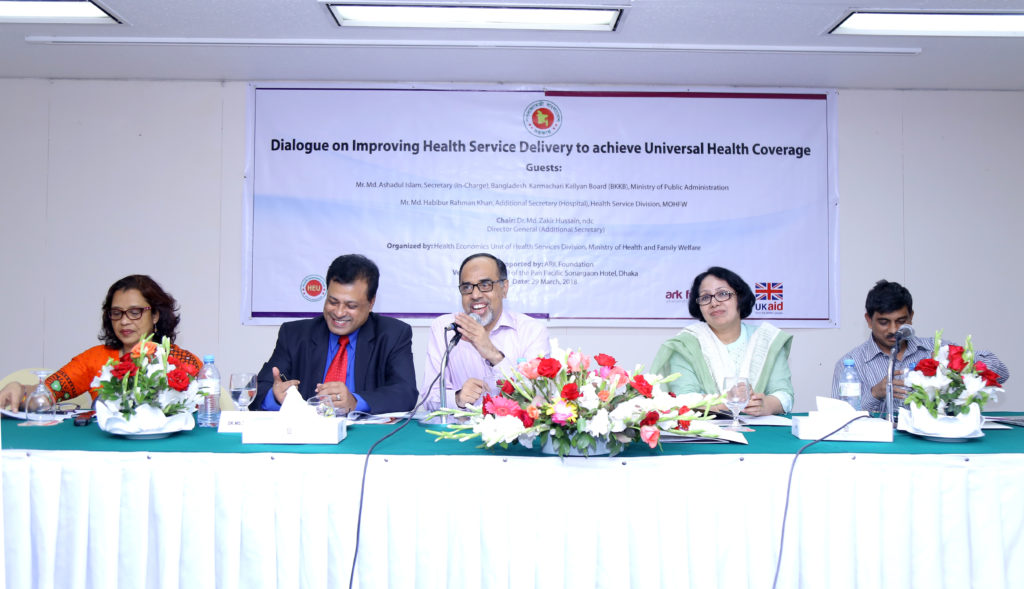
From left: Dr Khaleda Islam, Dr Md Zakir Hussain, Mr Md Ashadul Islam, Dr Shelina Ahmed, Dr Syed Abdul Hamid
The rising burden of communicable and non-communicable diseases is preventing universal health coverage in Bangladesh, the Director General (Additional Secretary) of the Health Economics Unit, Ministry of Health and Family Welfare (MOHFW), has said.
Speaking at a health policy event in Dhaka organised by MOHFW and ARK Foundation, Dr Md Zakir Hussain said constrained resources and increasing demand are making the delivery of safe, high-quality services for the entire population challenging.
“Resources are limited, so we need to consider how we can provide services more efficiently,” he said. “We also know that we need to ensure our health services are of high quality, with patient safety at their core; and we need to consider new and innovative ways to deliver services to citizens in their homes and communities.”
The event assessed the present state of health service delivery in Bangladesh. It saw senior level policy makers, service delivery personnel, development partners, academics and researchers come together to consider future options for achieving universal health coverage.
The double burden of communicable and non-communicable diseases was also emphasised in a keynote delivered by Dr Rumana Huque, Executive Director of ARK Foundation. Presenting lessons learned from studies undertaken by COMDIS-HSD, she said training of community health care providers on integrated management of childhood illness helped them to appropriately diagnose and refer selected infectious diseases, and developed their skill in rational use of drugs, including antibiotics.
Insufficient funding was revealed as one of the biggest issues affecting successful health care delivery within the country. Dr Shelina Ahmed, Health Advisor for the UK’s Department of International Development in Bangladesh, said underspend in budgets allocated for the health sector remains a problem. She called for the need to develop institutional capacity to ensure sustainability of investment.
Dr Syed Abdul Hamid, Chairman of the Institute of Health Economics at Dhaka University, highlighted current expenditure for basic health care is almost 50% lower than the minimum requirement. Around US$ 65 is needed per person each year for basic health care services in Bangladesh, yet current spending is only $US 37 per person.
Referring to work undertaken by COMDIS-HSD, Dr Khaleda Islam, Director of Primary Health Care, Directorate General of Health Services, said improving health service delivery in Bangladesh requires facility readiness, referral and transport, routine data and monitoring, quality improvement, capacity building and retention, and social and behavioural change communication.
Mr Md Ashadul Islam, Secretary (In-Charge), Bangladesh Karmachari Kallyan Board, Ministry of Public Administration, said that service coverage should be expanded, along with increased resources that are used efficiently. He emphasised the importance of ensuring coordination across operational plans of the MOHW, and coordination among stakeholders in improving health service delivery.

